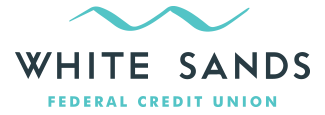Financial Literacy Quiz

How financially literate are you? Do you have the skills and knowledge to spend money wisely, save for emergencies, use credit cards sensibly, and protect your identity from being stolen? This short financial literacy quiz will help you test your financial literacy to see where you need to focus to improve your financial future.
- A credit report is:
- A list of your financial assets and liabilities
- Your monthly credit card statement
- Your credit line with your financial institution
- A loan and bill payment history
- In terms of credit, what does APR stand for?
- Annual Percentage Rate
- Annual Penalty Rate
- Annual Payment Rate
- Annual Payoff Rate
- The type of car you own affects the price you pay for auto insurance.:
- True
- False
- If your credit card is lost or stolen and used to charge items you didn’t authorize, how much are you responsible for?
- Up to $50
- Up to $100
- Up to $500
- All unauthorized charges
- Negative financial information (excluding bankruptcy) can stay on your credit report for:
- 2 years
- 5 years
- 7 years
- 10 yearse
- By using unit pricing at the grocery store, you can easily compare the cost of any brand and any package size.
- True
- False
- The “Rule of 72” tells you how long it will take to double your money.
- True
- False
- In financial transactions, a CD is a:
a. Certificate of Debt
b. Certificate of Deposit
c. Citizens Deposit
d. Certificate of Collateral
Answers
-
- (D) A credit report is a loan and bill payment history. It is kept by a credit bureau and used by financial institutions and other creditors to determine how likely you will repay a future debt. Information in your credit report can affect your ability to get a job, a loan, a credit card, or insurance.
- (A) It stands for Annual Percentage Rate. The APR is a measure of the cost of credit, expressed as a yearly interest rate. Usually, the lower the APR, the better for you.
- True. Your premium is based in part on the car’s sticker price, the cost to repair it, its overall safety record, and the likelihood of theft. Many insurers offer discounts for features that enhance safety or prevent theft. These include air bags, antilock brakes, daytime running lights, and antitheft devices. Some states require insurers to give discounts for cars equipped with air bags or antilock brakes.
- (A) You are responsible for up to $50. Under the Fair Credit Billing Act, your maximum liability for unauthorized use of your credit card is $50. If you report the loss or theft before your credit cards are used, the FCBA says you are not responsible for any unauthorized charges. If a thief uses your cards before you report them missing, the most you will owe for unauthorized charges is $50 per card.
- (C) 7 years. Late payments can stay on your report for 7 years; a Chapter 7 bankruptcy remains for 10 years.
- True. While the package price tells you the cost of the whole item, the unit price tells you the price of each unit in a package. A unit can be an ounce, a pound, a square foot, or an individual piece in a package. Unit pricing helps you compare costs of different brands and various sizes without doing arithmetic.
- True. The “Rule of 72” tells you how long it will take to double your money. To use the “Rule of 72,” divide 72 by the interest rate you’re getting. For example, if you deposit $3,000 into an account with a 2% interest rate, divide 72 by 2. The answer–36–tells you that you will double your money in 36 years; in 36 years, you will have $6,000.
- (B) In financial transactions, a CD is a Certificate of Deposit, and at credit unions, it is known as a Share Certificate. A CD is a type of savings account that earns a fixed interest rate over a specified period of time. At a credit union it is called a share certificate of deposit, which earns dividends.
1 Comment
Contact Us
Call Center:
(575) 647-4500 or
Hours of Operation:
Monday thru Friday, 8 am-5 pm
Mailing Address:
P.O. Box 99
Las Cruces, NM 88004
Routing & Transit # 312276470
Federally Insured by NCUA
Your savings federally insured to at least $250,000 and backed by the full faith and credit of the U.S. Government. National Credit Union Administration, a U.S. Government Agency.
Equal Housing Lender
We do business in accordance with the Federal Fair Housing Law and the Equal Credit Opportunity Act.
White Sands Federal Credit Union is committed to providing a website that is accessible to the widest possible audience in accordance with the WCAG 2.0 standards and guidelines. We are actively working to increase accessibility and usability of our website to everyone. If you are using a screen reader or other assistive technology and are encountering problems using this website, please contact us at 575-647-4500 or 1-800-658-9933. Please provide the location of the inaccessible information. All products and services available on this website are available at all White Sands Credit Union branch locations.


Good lesson